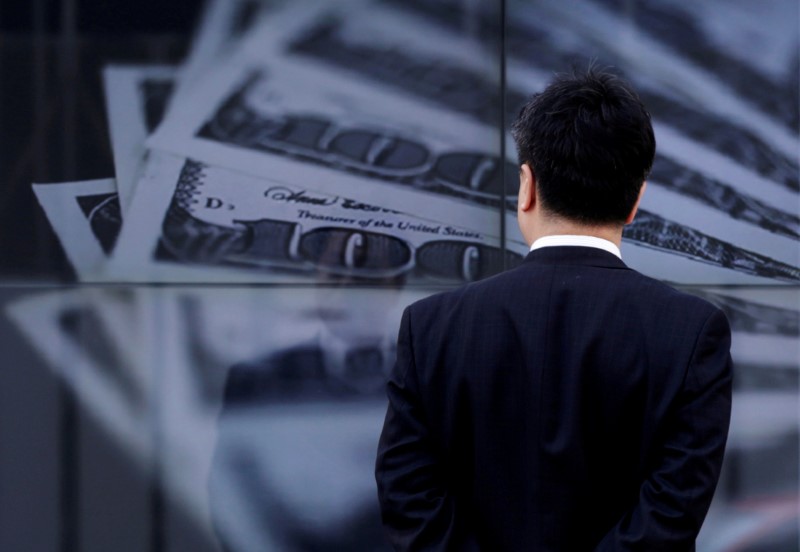
Weakness in the dollar comes just days before an address by Fed Chair Jerome Powell at the Jackson Hole Symposium on Friday, where he is expected to offer more cues on a rate cut.
A softer greenback helped spur a strong rally in the Japanese yen on Monday, while the Chinese yuan weakened slightly after the People’s Bank kept its benchmark loan prime rate on hold, as expected.
The dollar Index and dollar index futures steadied in Asian trade, after sinking to their lowest levels since early-January on Monday.
The greenback fell in tandem with U.S. Treasury yields amid growing optimism that the Fed will cut interest rates in September.
Powell’s address on Friday is expected to provide more cues on this front, although analysts do not expect the Fed chair to definitively outline when and by how much the central bank will cut rates.
Traders are pricing in a greater possibility of a 25 basis point cut in September, according to CME Fedwatch.
Lower rates present more outflows for the dollar, and herald some strength in Asian markets.
The Japanese yen weakened slightly on Tuesday after clocking a strong recovery in the prior session. The USDJPY pair rose 0.3% to 147.01 yen, after sinking as low as 145 yen.
Strength in the yen came chiefly from a softer dollar, and as economic readings from Japan suggested that the Bank of Japan had more headroom to raise interest rates further this year.
The Chinese yuan’s USDCNY pair rose 0.1%, taking little support from the People’s Bank of China keeping its benchmark loan prime rate on hold as expected.
August’s hold came after the PBOC unexpectedly cut the LPR in July, as it moved to further boost economic growth.
The PBOC is widely expected to cut rates further this year, amid growing concerns over an economic slowdown in China. This trend is also expected to keep the yuan pressured.
Broader Asian currencies moved in a flat-to-low range on Tuesday. The Australian dollar’s AUDUSD pair fell 0.2% even as the minutes of the Reserve Bank’s August meeting showed the central bank had considered a rate hike, and that it was likely to keep rates unchanged for longer.
The Singapore dollar’s USDSGD pair rose 0.2%, while the South Korean won’s USDKRW pair rose 0.1%.
The Indian rupee’s USDINR pair steadied below record highs amid signs of persistent market intervention by the Reserve Bank of India.
To read the full article, Click Here

